
How to Increase Collagen Production for Younger-Looking Skin
How to Increase Collagen
You’ve heard collagen is great for you. But what is this strange white powder and how does it get into my body? Is it really the fountain of youth and beautiful skin?
This article will explain what collagen is, strategies for trying to increase it and whether collagen supplements or powders are worth your money.
Before we get started, I wanted to mention that my company makes the number one food to increase your collagen levels: bone broth.
But you can't use any bone broth, it must have at least 12 g protein and 300 mg potassium. You can checkout the collagen boosting bone broth and see for yourself.
First a quick note: this website is reader-supported. I spend a lot of time personally evaluating, testing and reviewing each product on this list. When you buy through links on our site, I may earn an affiliate commission.
What is Collagen
Collagen is a protein that serve as the building blocks for your tendons ligaments bone, cartilage and skin (1).
Collagen’s unique properties play an important role in health and longevity because collagen makes up one third of your bodies protein.

In your body, collagen is a stiff structure that forms most of your connective tissues. It holds your tendons, cartilage and skin together.
There are 28 types of collagen. Types 1, 2 and 3 are the most common both in your body and in collagen supplements (2).
How Collagen is Formed in Your Body
Learning how collagen is made helps you understand some ways you might increase it. Collagen is secreted by connective tissue cells, where it forms the structural part of the extracellular matrix (3).
Confused? Bear with me. Think of the extracellular matrix as the scaffolding in all tissues and organs, including your gut lining and skin. It determines how tissue looks and functions.
This includes the middle layer of your skin: the dermis. Collagen helps form fibroblasts which allows new skin cells to grow and replacing old dying skin cells (4). This is why collagen gets hype for skin health.
What causes collagen production to decrease as we age?
Collagen production decreases because as we get older our body has a harder time making collagen. Sun exposure, life stresses, alcohol, smoking and environmental pollutants accelerate this decline.
By 60, the decline in collagen production is large.
One visible sign in your body is wrinkles. This is due to your skin losing its structural integrity (5). Dead skin cells need to be replaced, leading to more collagen loss.

“When skin ages, it produces less collagen because of a decrease in epidermal growth factor (EGF) within our body.” Dr. Ronald Foy, dermatologist
What are the benefits of increasing collagen production?
The benefits of increasing collagen production include the following:
1. Increasing skin elasticity and reducing wrinkles;
2. Reducing cellulite by increasing skin firmness;
3. Reducing muscle aches and pains by increasing skin elasticity;
4. Reducing joint pain from osteoarthritis, rheumatoid arthritis, gout or psoriatic
Since collagen is resorbable, it can be absorbed, broken down and reabsorbed into your body.
This is why collagen has clinical and personal uses in a variety of ways.
Medically, collagen is used as skin fillers, in wound healing (via dressings), in tissue regeneration and in treatment for osteoarthritis (6).
Collagen containing foods and powders are also used to promote collagen production in your body.
Collagen has been researched on everything from helping you sleep, to controlling blood sugar, to restoring gut health and treating joint pain. For more information on the health benefits of collagen powders.
In addition, many have touted collagen for many other uses which do not have research to support. These include collagen containing creams and balms.

How can we increase collagen production naturally?
There are a couple of things you can do to increase collagen production, these include lifting weights, exercising, avoiding pollution and smoking, and eating certain foods.
However, much like father time, collagen will decline with age no matter what you do. There is no way to systematically boost collagen everywhere in your body.
How can I increase my collagen fast?
You can increase collagen fast through lifting weights and eating the right foods at the right time. The timing is crucial for diet and exercise in order to get it into your skin, joints and tendons when it can do the most for you.
1. Lift Weights to Boost Collagen Levels
Strength training specifically can help build collagen in your ligaments and tendons. This allows us to move better, improve performance and prevent injury. All of which is especially important as we age.
All weight training has been shown to help increase collagen in your tendons. However there is a slight tweak on traditional weight training which is shown to further develop or regenerate ligaments, tendons and joints.
For best results you need repeated short period (<10 minutes) of activity that load the connective tissue followed by long periods of rest (6 hr) (7).
For example if you have problems with your ankles or Achilles tendons. You would jump rope for 8 minutes then rest for 6 hours then jump rope again.
For more detail on the exercise plan to optimize collagen in your tendons and joints, read item #3 here.
2. Diet For Collagen
There are many foods that support collagen in your body. But the first step is removing sugar, industrial seed oils and highly processed foods.
You’ve undoubtedly heard elsewhere, but these foods are incredibly pro-inflammatory and harmful. They also expedite collagen destruction.
Nourishing your body with the right building blocks can help collagen formation and help with weight loss.
Collagen containing foods should always be taken with vitamin C
A practical application is to have your collagen containing foods (or collagen supplements) before or with a meal.
This will provide enough vitamin C to shuttle the collagen into your tendons and ligaments.
However, to maximize collagen production in your tendons, you should take collagen + vitamin C (50 mg) 1 hour before weight training or exercise (7). It follows that any foods high in collagen are also a great way to boost collagen production.
These foods include: bone broth, organ meats, animal skin and connective tissue: basically eating nose to tail. Food as medicine should always be your first approach.
What foods are best for collagen production?
There are a key nutrients and foods that are needed to produce collagen in your body. These include bone broth, liver, oysters, spirulina, sweet potato, carrots, raspberries, purple cabbage and shiitake mushrooms.
Natural Collagen Foods
Natural collagen containing foods include bone broth, oxtail, chicken wings, animal skin and chicken feet. Basically you want anything with connective tissue or small joints that you can eat. This gives you rare amino acids to boost your own levels.
In addition to this list, tough, cheap cuts of steak are also rich in it because they have more gelatin and connective tissue. The reason they are tough is what gives them their health benefits. As they slowly cook, this tissue gets broken down to more easily eatable forms for humans.
Bone Broth
Bone broth is the number one food to boost your collagen production. Properly made bone broth has 10-12g of collagen per serving along with hydrating electrolytes. The balance of these two things are perfect for developing new collagen throughout your body.
But you can't use any bone broth. You need one with at least 12 g protein per 13 g serving. This ensures it is all protein without junk fillers, concentrates and preservatives. Bluebird Provisions makes the absolute best bone broth to increase collagen in your body. You can find it on Amazon Prime.
Chicken Wings With Skin On
Animal skin and connective tissue is the best source of collagen in everyday foods we eat. For this reason, you should always eat the skin on your skin and look for joints instead of lean protein options. Wings, drumsticks and feet have the most collagen.
These parts of the chicken get you 2-3 g of natural collagen per serving to help hydrate and rebuild your skin.
Beef Oxtail or Short Ribs
Approximately 40% of natural collagen found in most animals is in their joints, tail and feet so you get a massive blast of natural bioavailable collagen from eating oxtail or short ribs.
Food-based forms of collagen are superior to synthetic powders and peptides because they are in their natural state. Meaning your body knows how to break them down properly.
Slowly cooked meats like oxtail and short ribs have more connective tissue and thus more collagen. The tricky part is that they take longer to prepare and cook. But they are absolutely delicious.
Gelatin
Gelatin is very similar to collagen. They have the exact same amino acid profile. Meaning they are made of the same component parts. The process to make them is nearly identical and have the same health benefits.
Collagen and gelatin are shown to reduce visible signs of aging including wrinkles and crow's feet after 8 weeks of use.
So what is the difference? Gelatin is basically cooked collagen. For this reason, gelatin will 'gel' at fridge temperature, where collagen will not. One serving of gelatin is equivalent to 8 g of collagen.
Copper Foods Like Algae
- Collagen synthesis is directly controlled by the availability of copper.
- Sources: Organ meats (liver), oysters, spirulina, shiitake mushrooms, sesame seeds.
Vitamin A Food Sources
- Stimulates collagen in your skin.
- Organ meats (liver), sweet potato, carrots, spinach.
Vitamin C Nutrients
- Increases collagen synthesis, increases bone healing, reduces oxidative stress, positive benefits for all aspects of skin health.
- Vegetables, fruits, aloe vera

Anthocyanins and Antioxidants
- Increase collagen in the skin specifically.
- Red, blue or purple foods: raspberries, black currants, blueberries, blackberries, purple cabbage.
What supplements can help with collagen production?
There are some supplements that can help with collagen production. These are mainly collagen powder and gelatin. I realize that supplements may be a better fit for your busy lifestyle, so let's get into it.
Collagen Powder or Peptides
Collagen powders have the most positive research behind them and are generally recognized as safe. Meaning there is little downside to trying them. A small minority of people report stomach upset with some collagen products.
Look for an organic option that is made and sourced in the USA or Canada. Learn the shocking way collagen is made in this article.
The tricky thing about collagen is that 90% of it is made in Asia or South America. These areas don't have strict standards so you get some shady sourcing.
Looking for a supplement recommendation? Read my guide to finding the best collagen peptides supplement.
Gelatin
Gelatin is very similar to collagen. They have the exact same amino acid profile. Meaning they are made of the same component parts. The process to make them is nearly identical.
So what is the difference? Gelatin is basically cooked collagen. Fort his reason, gelatin will 'gel' at fridge temperature, where collagen will not.
My favorite is the grass fed beef gelatin from Great Lakes.
I heard collagen gets broken down in the body, so it doesn't work
I’ve read the naysayers saying that collagen powder is not useful because it gets broken down into its individual amino acids when digested and thus cannot contribute to collagen building in the body.
My answer to this is of course it does! This is exactly what we want. Since the 2 main amino acids in collagen, Glycine and Proline, have the most positive research to support collagen claims.
Speaking of which, Glycine and Proline are also found in high amounts in bone broth. Glycine in particular has a ton of research for blood sugar control and sleep.
At Home Treatments to Help Collagen Production
Some at home treatments to help collagen production include controlling lifestyle factors like diet, exercise, stress management and controlling environmental risk factors like the sun and pollution.
Protect yourself from the sun to reduce skin aging
Everywhere you look there are environmental pollutants looting your body of its collagen. High dose UV radiation from sun exposure or tanning beds are among the worst.
For this reason its best to limit your sun exposure if you care about skin and collagen health.
If you’re still smoking, please quit
This almost goes without saying. But if you’re struggling with quitting tobacco usage, add skin health to the list of benefits for quitting. When you exhale smoke, the chemicals cause skin congestion.
When cigarette smoke contacts your skin it reduces blood flow causing the collagen in your dermis (skin layer) to dry out and die.
Sleep and Stress Management For Collagen Synthesis
Stress is a part of life. However, improving sleep quality is the single best way to help you better respond to stress. Plus, sleep is all the rage right now.
Excessive stress increases cortisol levels. High cortisol is directly shown to decrease collagen synthesis.
As a bonus: oral ingestion of glycine (makes up 1 third of collagen) before bed is shown to relax your nervous system and help you sleep.
Closing Thoughts
There are a few strategies for boosting it naturally. I always encourage you to get your collagen from food sources first. If you don’t have the time to prepare or obtain these foods, a collagen supplement may be worth trying.
As always, the best bone broth for boosting it is made by Bluebird Provisions. It gives you 12 g per serving. Get some today and see what it can do for you.
Have you taken collagen? Did it do anything for you? I'd love to hear your experience! Let us know by leaving a comment.
FAQs are below.
What topically applied products can help with collagen production?
No topically applied products can help with collagen production because the collagen molecules are too large for your skin to absorb.
Don't believe me? There is zero research supporting that collagen creams increase collagen levels.
How does laser therapy help with collagen production?
Laser therapy does not help with collagen production. It may help with other things, but your money is better spent on collagen containing foods like bone broth. You can use certain tips to boost collagen, but laser is not one of them.
Disclaimer: this information is for educational purposes only and has not been evaluated by the FDA or CFIA. It is not intended to diagnose, treat, cure, or prevent any disease. Please consult your primary care physician for advise on any of this.
Bluebird Provisions is reader-supported. When you buy through links on our site, we may earn an affiliate commission. As an Amazon Associate, we earn from qualifying purchases.

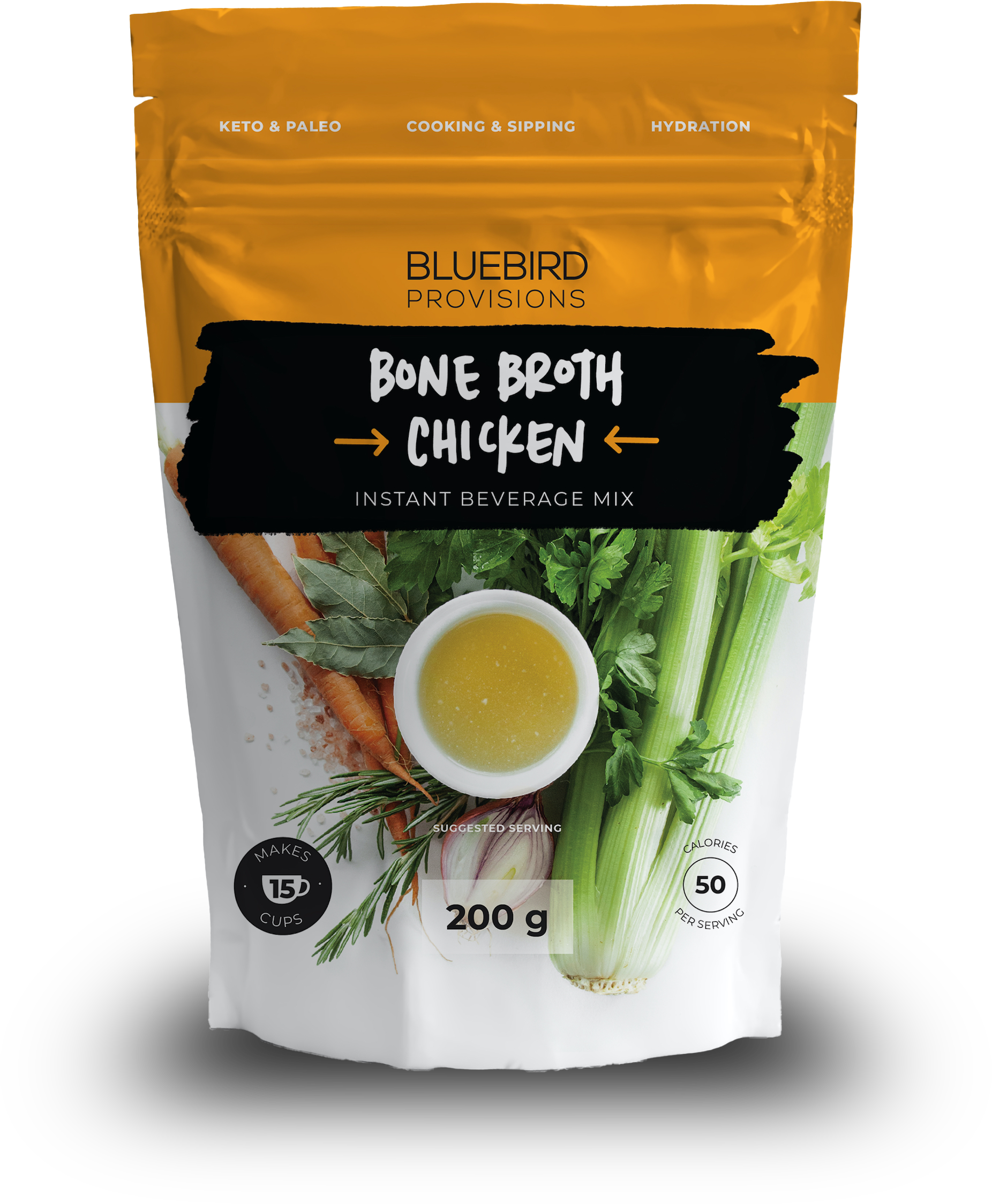
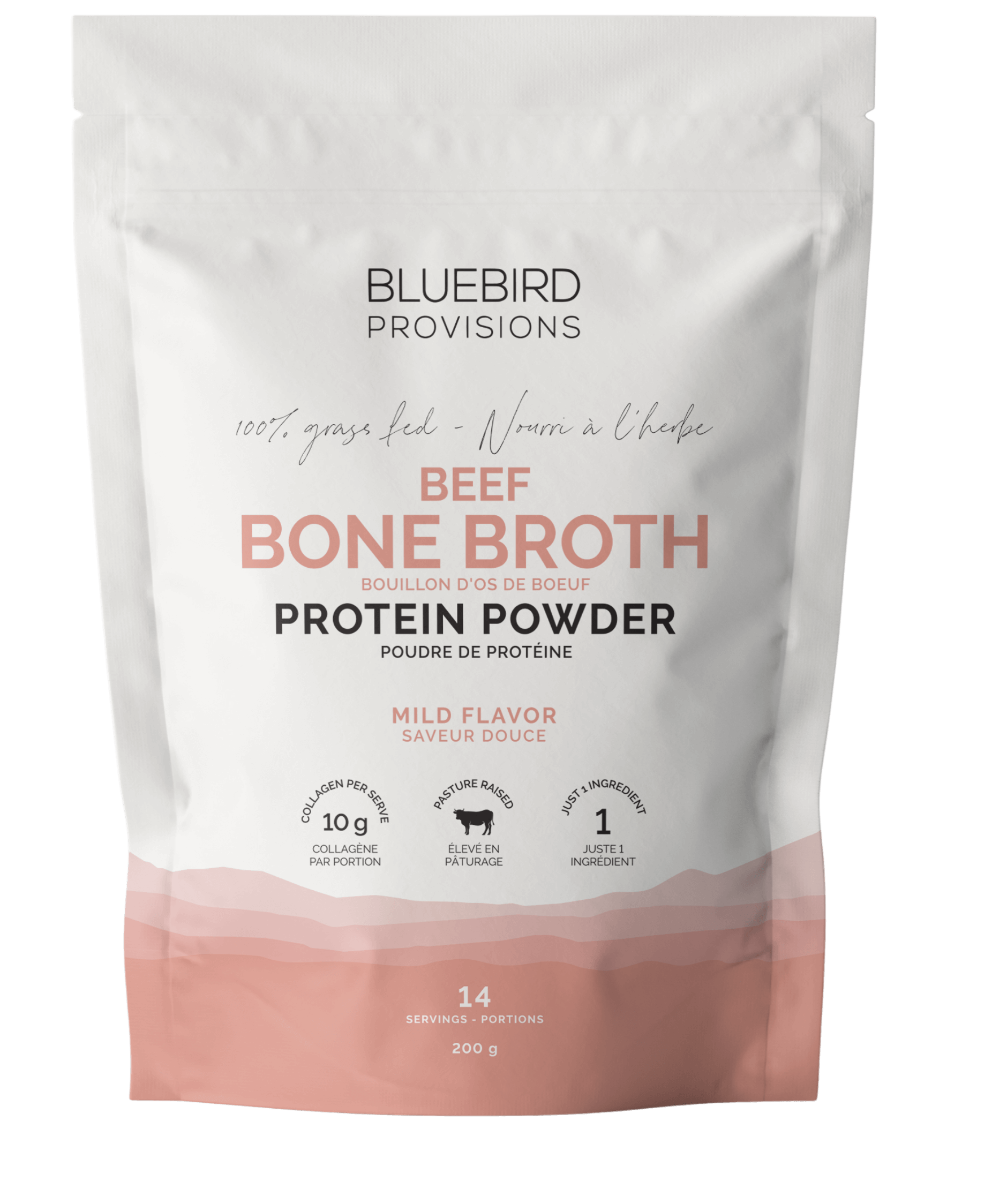
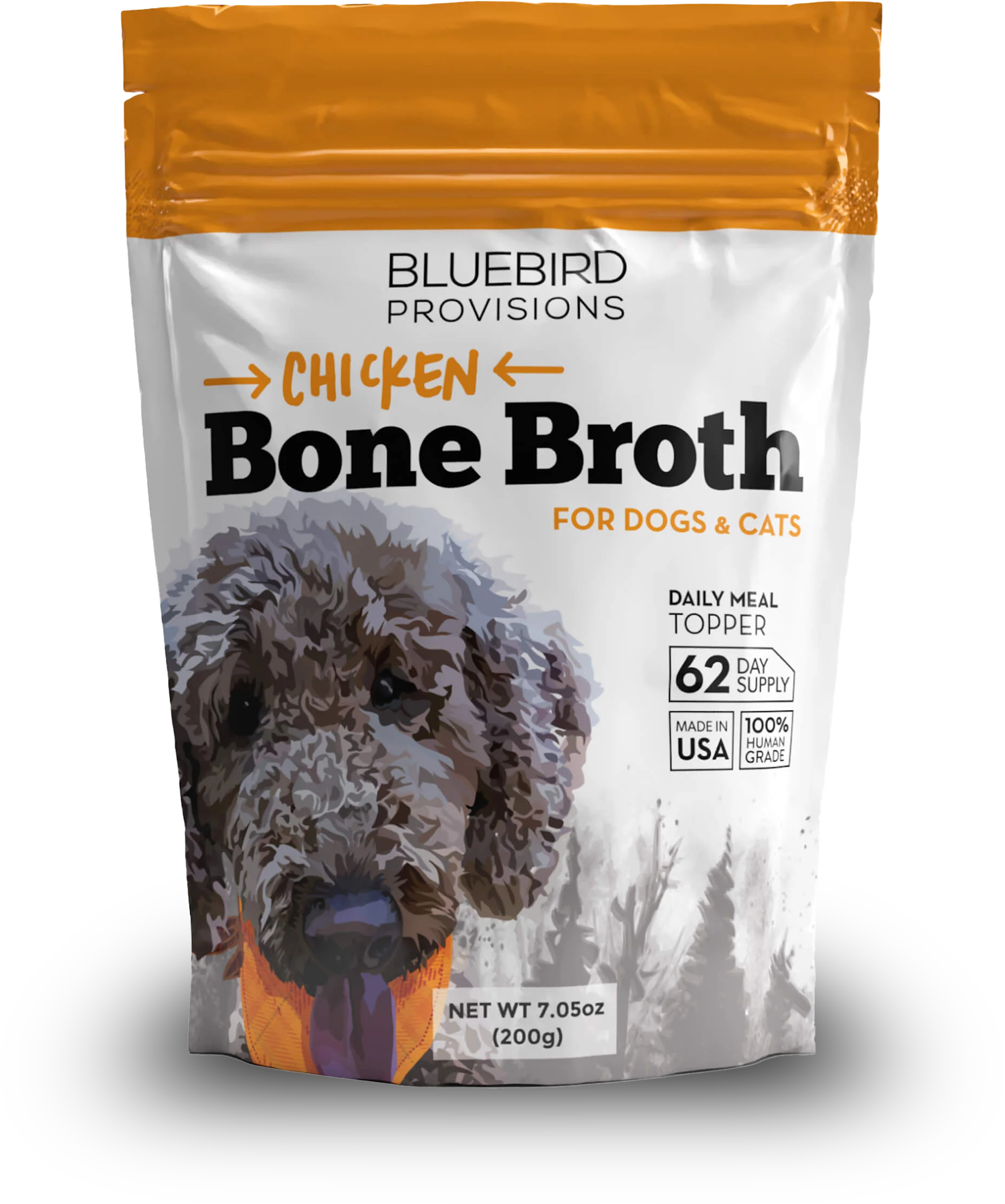
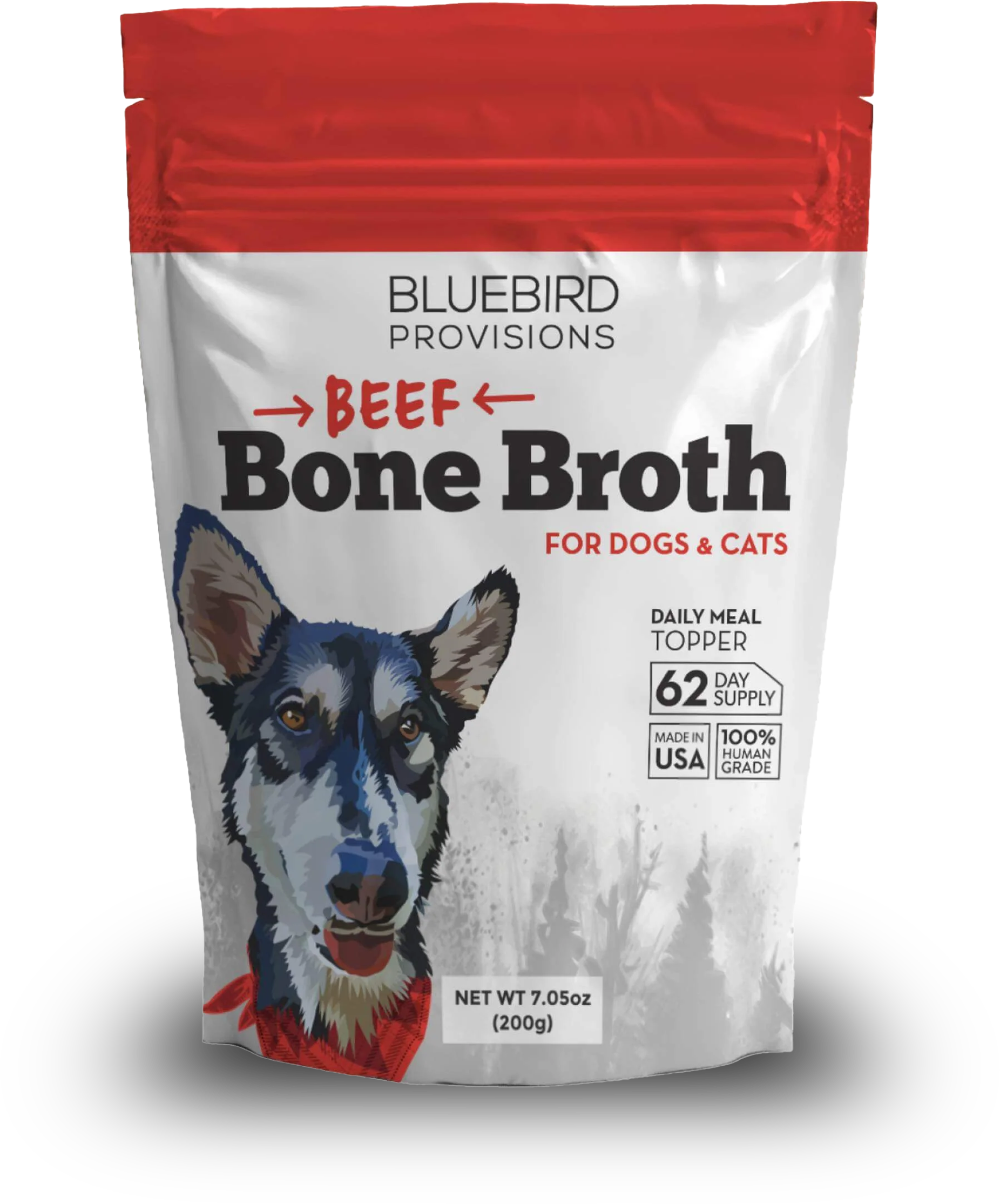
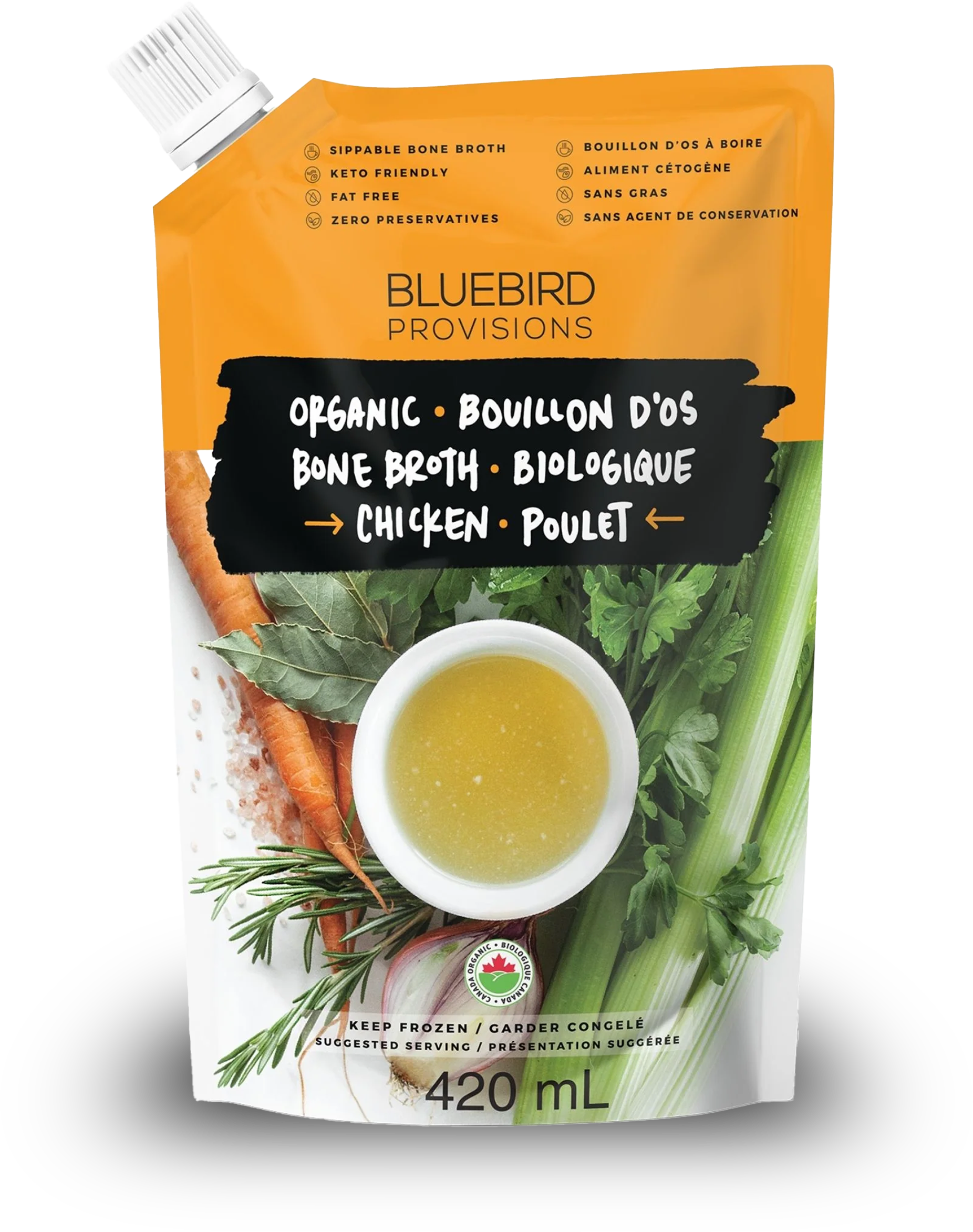
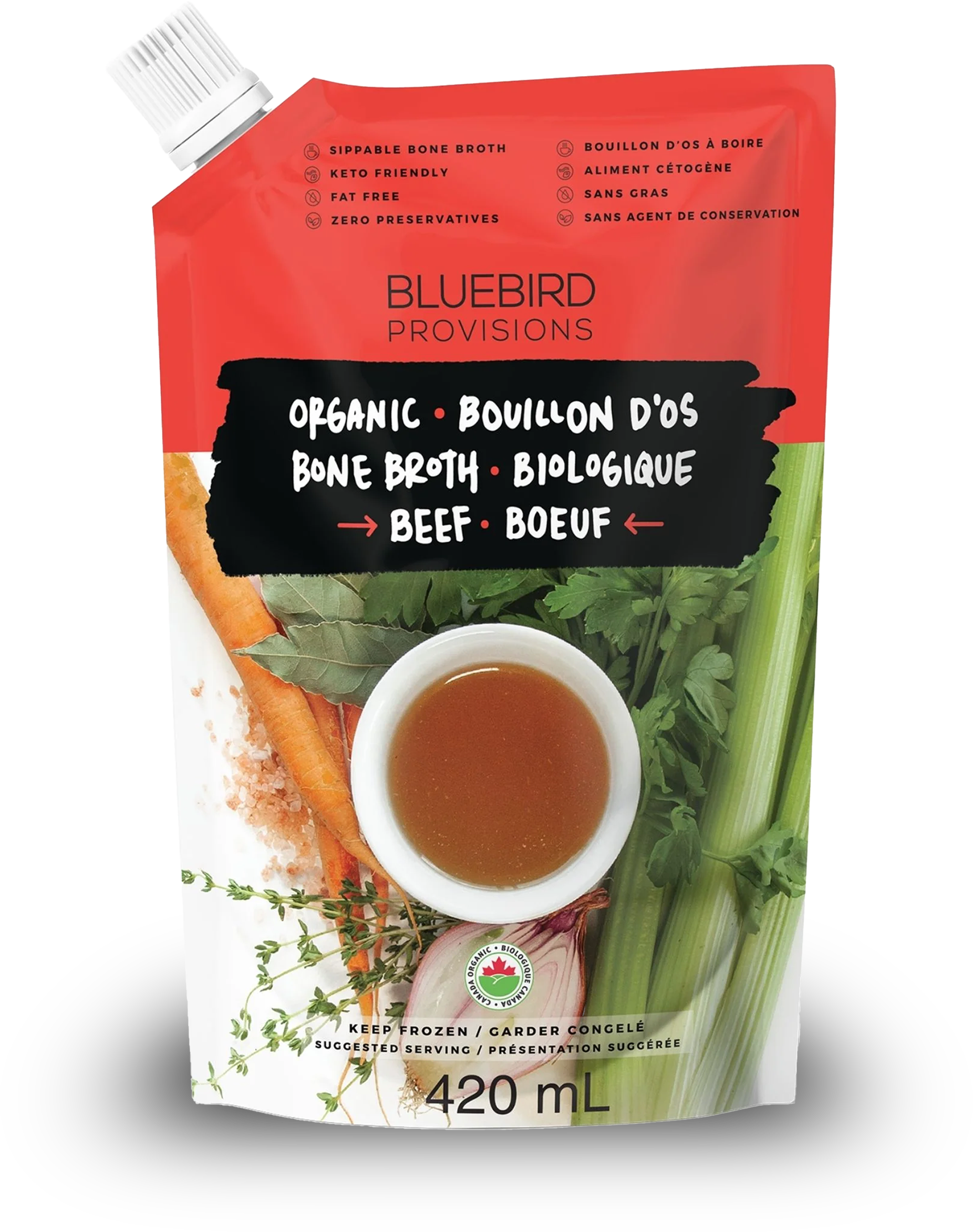


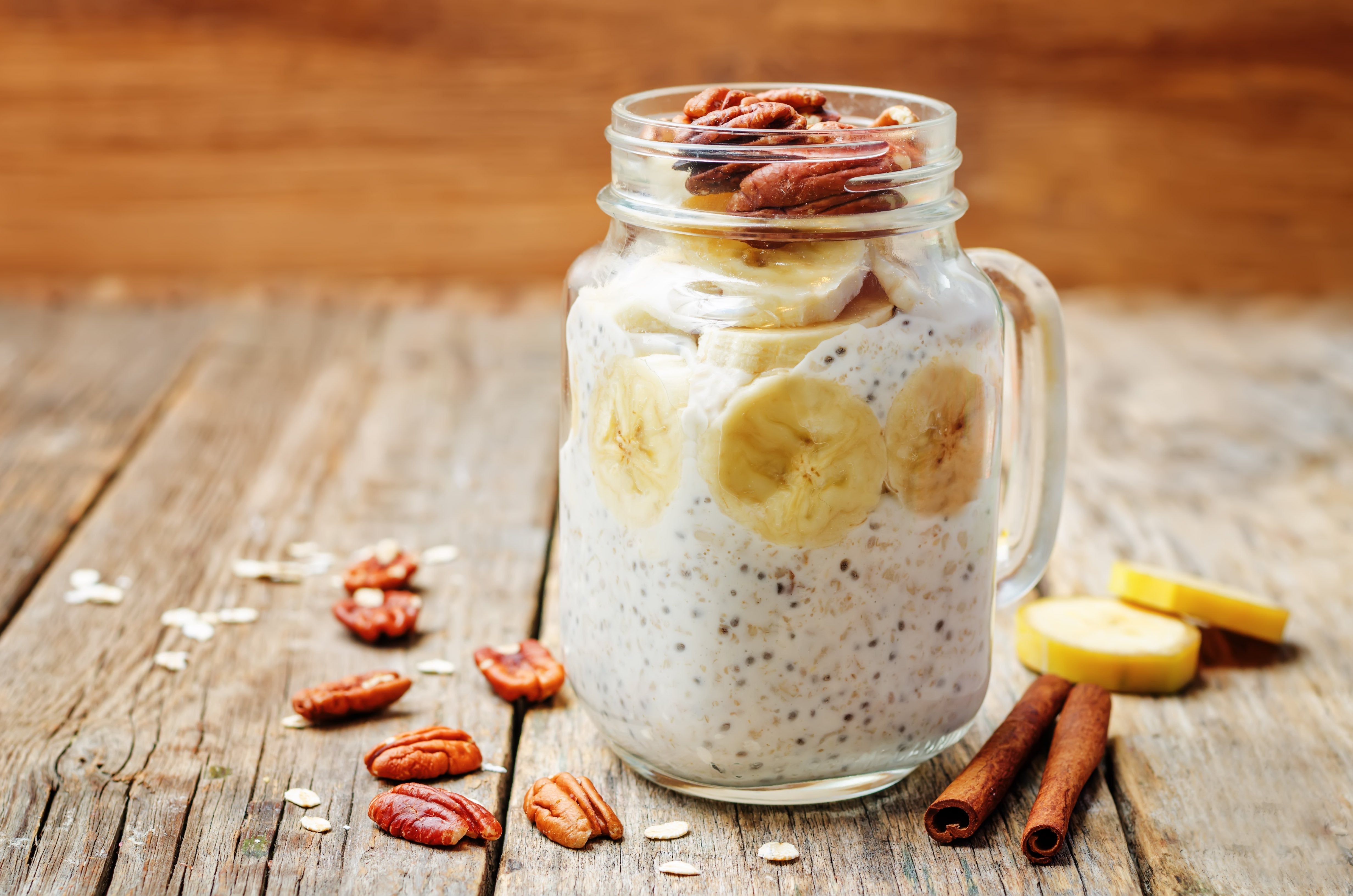
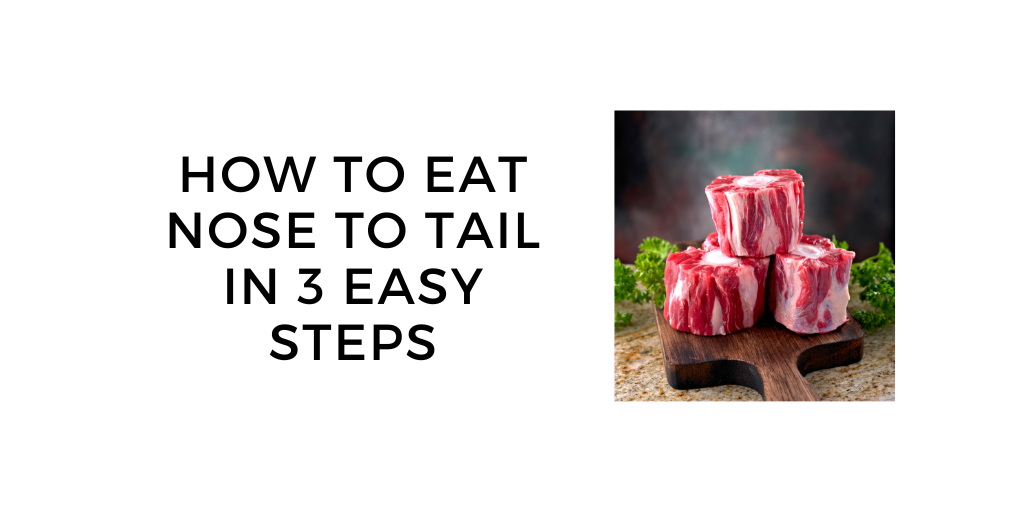
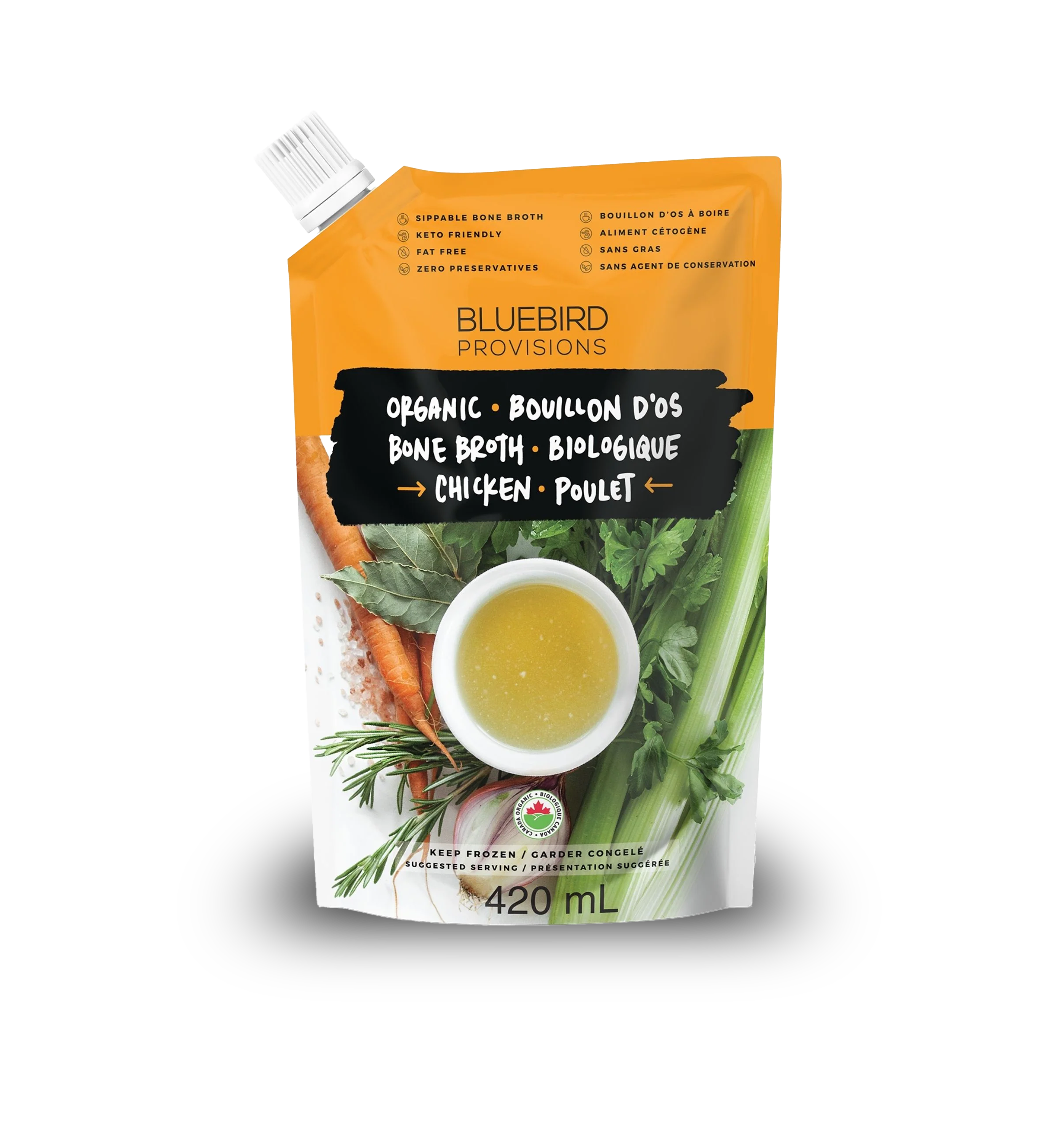
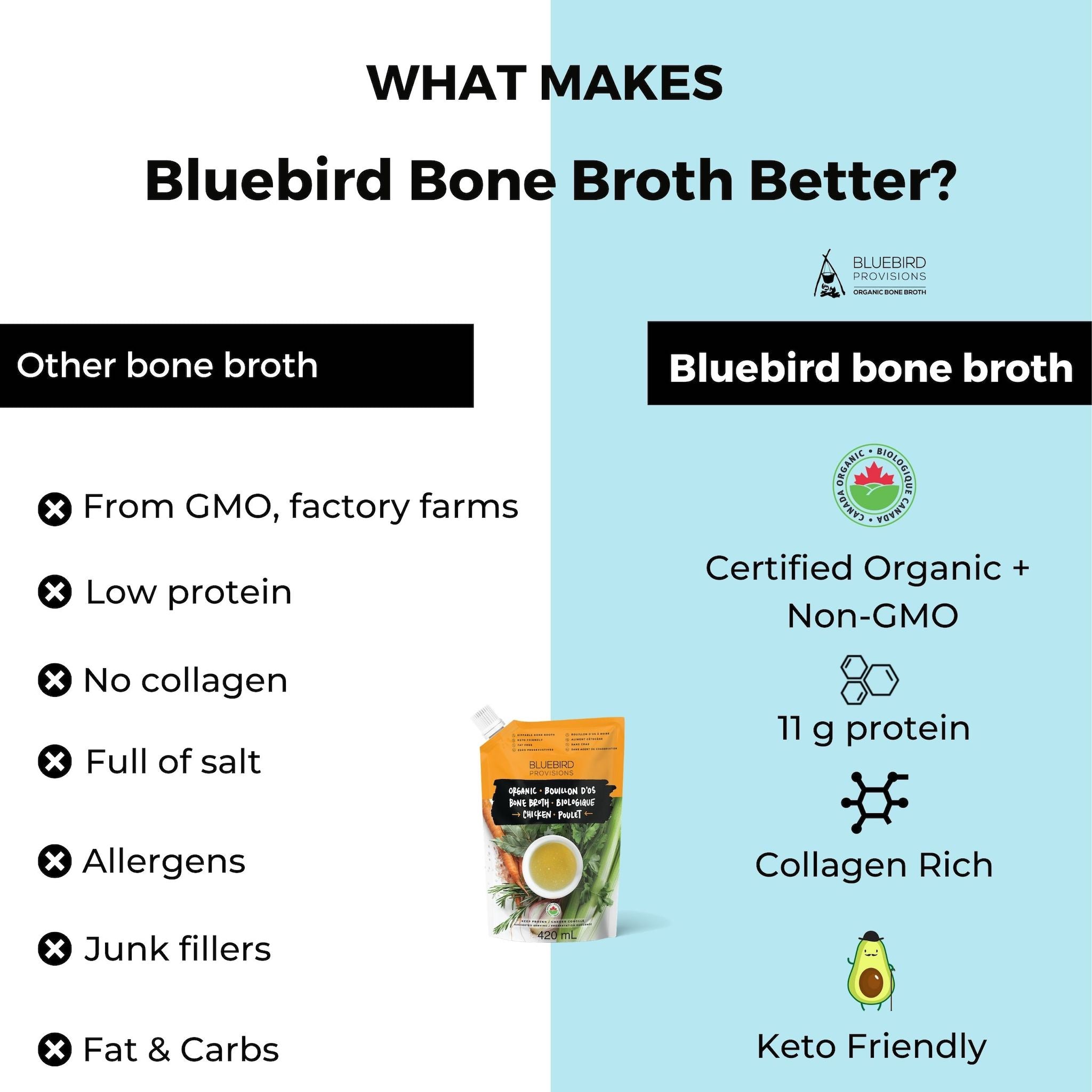
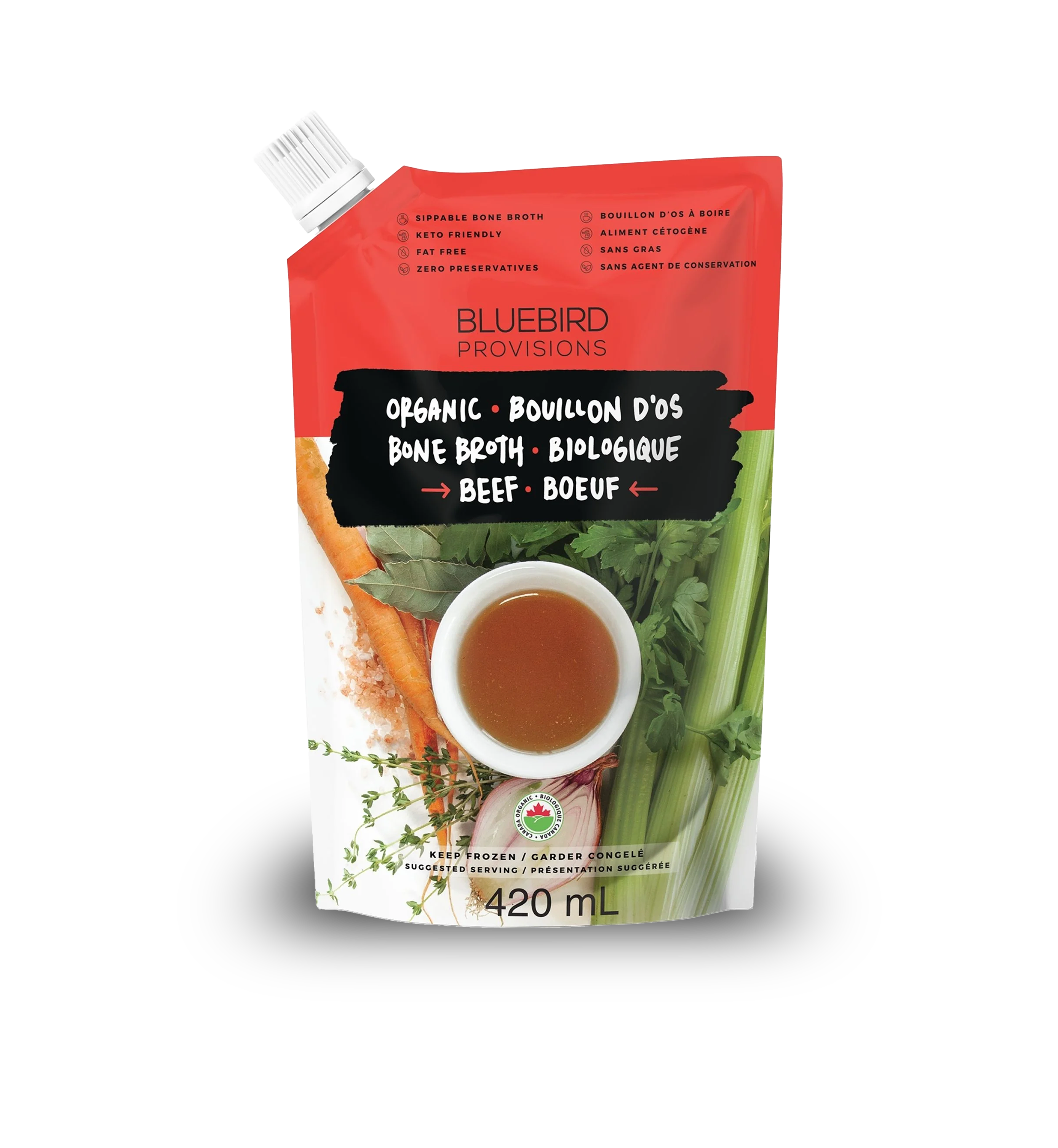
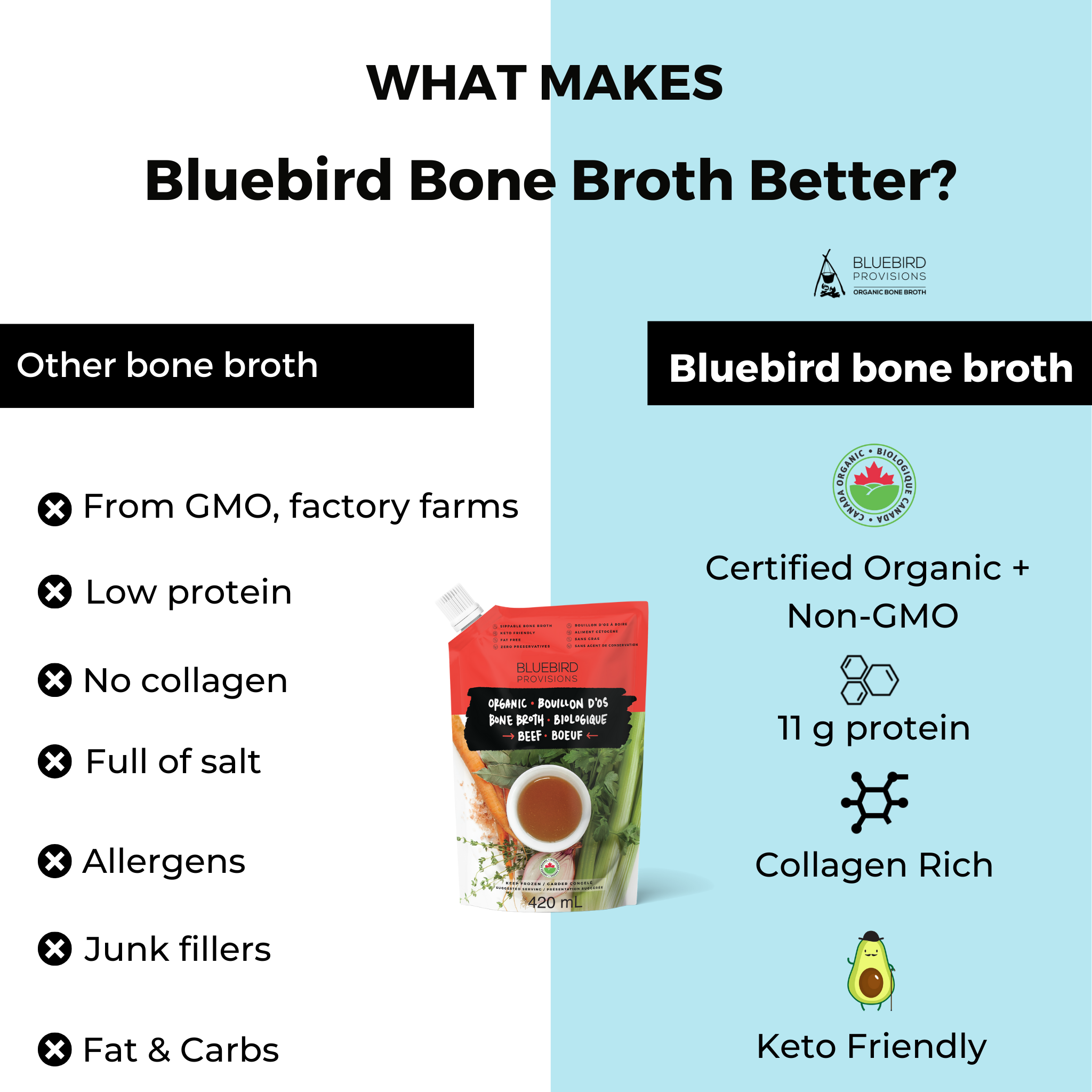
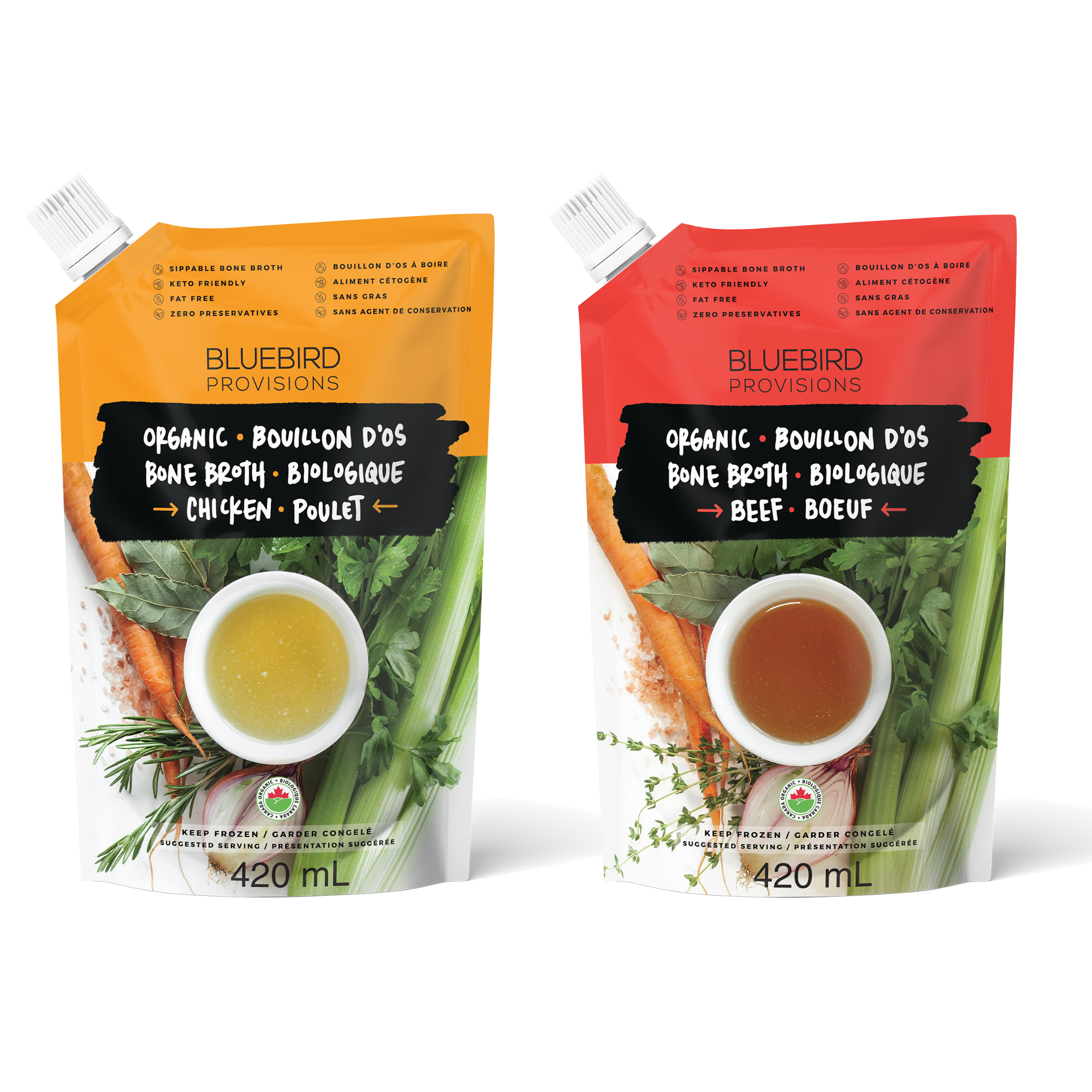

4 comments
Thanks for reading Trista!
connor
Connor at Bluebird Provisions
I appreciate you sharing such useful and enlightening information. I agree that collagen production decreases with age, resulting in wrinkles and drooping skin. I appreciate you providing such useful advice and suggestions.
Trista
Thanks for your note Barb. 5 servings a week is a great place to start. Our bone broth is all collagen. So 12 g of protein per serving will give you 12 g of collagen.
So if you are drinking a high quality and protein rich bone broth, you do not need to worry about using collagen. Bone broth is better.
connor
Connor at Bluebird Provisions
How much collagen should you have? If you are already drinking the bone broth then do you really have to add collagen powder? Is the amount of collagen in your broth the same as how much protein?
barb
Leave a comment
This site is protected by hCaptcha and the hCaptcha Privacy Policy and Terms of Service apply.